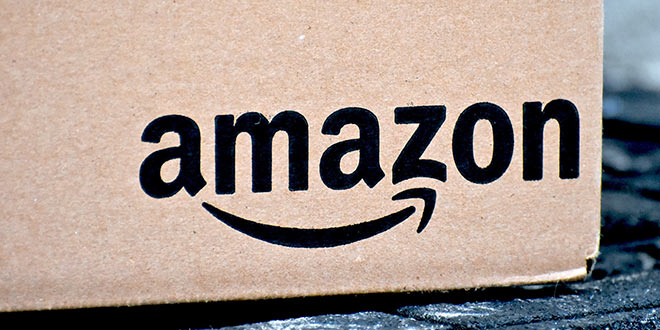Since the mid-1990s, Amazon.com has evolved from an online bookstore to the e-commerce giant that has in many ways forced brick-and-mortar businesses to change the way they do business in the U.S. Additionally, Amazon has found its footing globally, establishing a presence in several countries across the globe. Now, the retailer is adding another country to its list by expanding its offerings to Australia.
In a company statement, Amazon has confirmed the new move and that it is actively seeking a fulfillment center in the country.
“Amazon Web Services launched an Australian region in 2012, we launched a Kindle Store on Amazon.com.au in 2013, and we now have almost 1,000 employees in the country,” Amazon says in its statement. “The next step is to bring a retail offering to Australia, and we are making those plans now. We are optimistic that by focusing on the things we believe customers value most—low prices, vast selection and fast delivery—over time we’ll earn the business of Australian customers.”
For a better understanding of what the introduction of Amazon will mean to independent home improvement retailers in Australia and how they plan to compete with the retailer that has been waging its war in the U.S. and Canada for years, Hardware Retailing interviewed Scott Wiseman, executive officer of Hardware Australia, the national independent hardware industry’s association.
Hardware Retailing (HR): Can you tell us about the hardware and home improvement industry in Australia? How many independent retailers are in the industry?
Scott Wiseman (SW): The hardware industry in Australia is made up of some 6,500 operators with 3,900 suppliers. The industry has seen significant market concentration over the past decade and since [big-box retailer] Bunnings was introduced. The past year has seen additional changes, with Masters exiting the marketplace and the merging of Mitre 10 and Home Timber & Hardware into the Independent Hardware Group.
Outside of these more prominent brands, buying groups such as Hardware and Building Traders (HBT) and Nat Build are experiencing significant growth and competition.
Hardware Australia’s industry figure places industry turnover at $22 billion per year with the sector growing. The industry continues to be comprised of small to medium businesses, but the retail sales segment is dominated by Bunnings.
On the association side of things, during 2016, each of the previously state-based hardware associations merged into Hardware Australia to form a single national body and voice for the independent hardware and building supplies industries. Hardware Australia is focused on protecting, promoting and supporting operators and the industry and is already proving to be an effective voice for the independent industry.
HR: What would you say the Australian consumer is more inclined to do—shop online, visit a store or both?
SW: There continues to be a great deal of analysis and research into the Australian consumer and their relationship to hardware. PriceWaterhouse Coopers (PwC) produced a report for the Australian Government’s Productivity Commission in 2015, which highlighted hardware as a particular industry where consumer and store contact was still seen as highly important to the purchase process and decision with consumers reliant on advice, expertise and service of the sales person.
With this basis, we see that the hardware category may be one that is slower to be impacted by online shopping than others. However, the use of the internet for price comparisons and research prior to purchase is certainly prevalent and a key thing for hardware operators to be on top of.
In total, online shopping in Australia still only accounts for some 7.1 percent of sales.
HR: Why do you think it took so long for Amazon to come to Australia?
SW: The Australian economy, population and marketplace is relatively small in comparison to many other advanced countries. This might explain why Amazon is only just entering the marketplace.
HR: Has there been pushback among retailers when it was announced that Amazon entering the Australian market?
SW: The threat of Amazon coming to the Australian market has provided the motivation for all retailers to lift their game in relation to their omnichannel functionalities. Retail leaders have certainly increased their focus and attention to this element of their businesses.
In the hardware industry specifically, stores are placing more emphasis on their online communications with customers through Facebook , Twitter, their store websites and by utilizing online marketplaces such as eBay and Gumtree as secondary avenues to sales and clearing of slower-moving stock items.
HR: What do you think the strategy is to remain competitive now that there is an online competitor in Amazon? Were there already other online threats, or do you think Amazon poses a bigger threat than anything Australian retailers have experienced previously?
SW: Amazon certainly carries significant presence in the online world, however, the Australian consumer may pose a challenge for Amazon in terms of loyalty and buying local. Aldi’s latest shift has been to increase the marketing emphasis on locally sourced products and produce to continue its market penetration and acceptance by Australian consumers. This is one characteristic that Amazon will have to contend with.
The other consideration is that Australian’s have been shopping online for over a decade now with slow adoption. This means that the novelty aspect of Amazon’s platform experienced in other countries may be minimized, which could see a slower uptake and penetration into the market, in which case Amazon will have to be ready for a waiting game.
In terms of the strategy to remain competitive, hardware operators will need to continue to be focused on providing the service and advice to customers about using the products rather than customer visits just being a transaction. Bunnings has successfully positioned themselves as the perceived lower price, no-frills retailer of the market, which may leave them more exposed to the competition of a pure online platform than other operators in the industry.
There hasn’t really been a prevalence of online shopping, especially in the hardware sector given the nature of the advice and service sought by customers with regard to hardware purchases. Amazon entering the market sector is expected to see downward pressure on pricing across the more generic product items, but we expect that specialized items will continue to maintain pricing and these specialized items and service are where the real hardware sector is.
HR: What retail industries do you believe may feel the biggest impact from Amazon’s presence?
SW: The sectors that we expect will be most impacted by Amazon coming into Australia will be electronics, consumer goods, appliances, toys and those where service differentiation is limited and consumers can easily research and compare items across sellers. As stated earlier, hardware and building supplies is expected to be a later sector, however, operators will need to be watchful of a rapidly changing environment and to keep pace with changing technology that will influence sales transactions and processes.
 Hardware Retailing The Industry's Source for Insights and Information
Hardware Retailing The Industry's Source for Insights and Information








